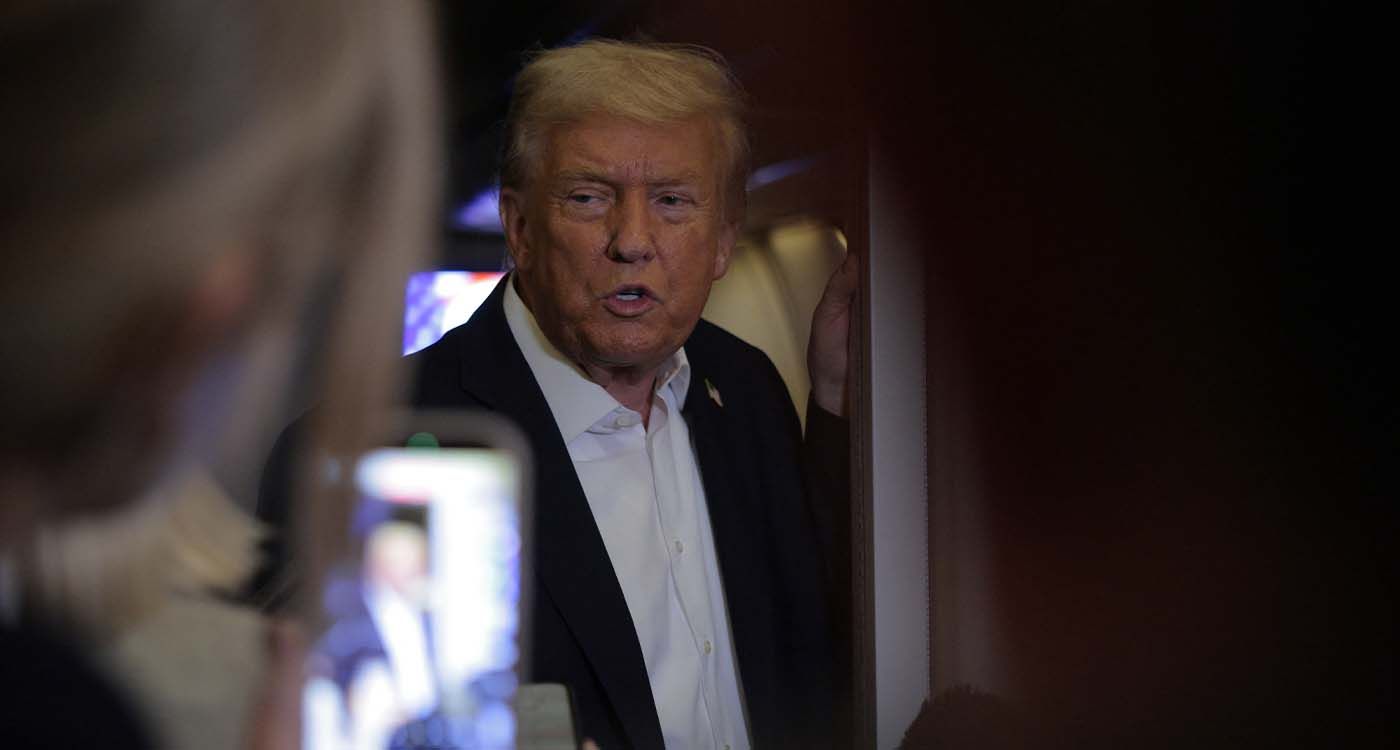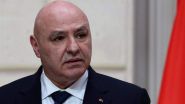
In the wake of the recent Gaza peace agreement, the United States is sharpening its focus on disarming Hezbollah, the militant group that has long contributed to Lebanon's instability. The aftermath of this agreement is expected to catalyze significant geopolitical shifts, compelling external powers, particularly the US, to take decisive actions against Hezbollah.
Speaking in the Knesset, President Donald Trump asserted, "In Lebanon, the dagger of Hezbollah, long aimed at Israel's throat, has been totally shattered. My administration is actively supporting the new president of Lebanon and his mission to disarm Hezbollah's terror brigades permanently." This statement underscores Trump's commitment to peace in the region and highlights the US's renewed engagement with Lebanon as it seeks to bolster its statehood.
The latest developments in the Middle East indicate that, rather than adopting an isolationist stance, the Trump administration has become deeply involved in regional conflicts. American experts describe the region as being at a "pivotal moment," where the old order is collapsing and a new one is beginning to take shape. The US, therefore, is playing a crucial role in stabilizing the Middle East while also aiming to reshape its political landscape.
The Gaza peace agreement, carefully orchestrated by the Trump administration, has significant implications for Lebanon's security and political landscape. An American diplomat pointed out that this agreement could alter Israeli military strategy by redirecting its focus toward its northern border. This shift may compel the Lebanese government to intensify its demands for Hezbollah's disarmament.
Indeed, Hezbollah's persistent military capabilities, operating beyond the control of the Lebanese state, pose significant challenges to Lebanon's sovereignty and contribute to the nation's ongoing struggles with economic turmoil and international isolation. In September 2025, the Lebanese government took a step towards addressing this issue by approving a phased disarmament roadmap targeting Hezbollah.
Despite this, US patience appears to be waning. American officials are increasingly insistent that Lebanese authorities must take decisive action to disarm Hezbollah, viewing this disarmament not merely as a requirement but as a critical step towards the restoration of peace and governance in Lebanon. The US has made it clear that its support for Lebanese security forces is contingent upon tangible progress in dismantling Hezbollah's military capabilities.
A significant security package has recently been approved to strengthen the Lebanese Armed Forces (LAF) in their efforts to dismantle Hezbollah's operational networks. US Representative Darin LaHood emphasized the urgency of this action, stating, "There must be tangible results in the disarmament of Hezbollah, especially in the South."
As the implications of the October 2025 Gaza Agreement begin to unfold, Lebanon's political landscape is at a critical juncture. Increased Israeli military operations directed at Hezbollah positions and heightened US emphasis on the need for effective disarmament place the LAF in a challenging position. On October 6, 2025, the Lebanese army presented a report to the cabinet detailing its military plan to disarm Hezbollah and secure state control over all weapons in Lebanon, responding to the lingering instability resulting from the 2024 Israeli-Hezbollah war.
Experts warn that Lebanon must adapt its strategies in light of ongoing geopolitical shifts. They point to three important decisions impacting the region: the US strikes on Iranian nuclear facilities, the lifting of sanctions on Syria, and the normalization of relations with Syria's transitional government, alongside the strong backing for the Netanyahu administration's policies against Gaza and Hezbollah.
As the US continues to navigate its role in the Middle East, its stance against Hezbollah and support for Lebanon's path toward peace remain critical components of its foreign policy strategy. American diplomats have emphasized the importance of seizing opportunities for peace and de-escalation, particularly in light of recent developments. Sources close to the US State Department have indicated that Hezbollah is actively seeking to exploit the ongoing instability in Lebanon. The end of the Gaza war should serve as a wake-up call for Lebanon to capitalize on the current administration's willingness to facilitate a peace agreement.
According to White House sources, President Trump is planning to work through the new US ambassador, Michel Issa, to lay the groundwork for an agreement similar to the one achieved in Gaza. Concurrently, he intends to collaborate with key Arab and European nations on the Lebanese issue while applying pressure on Iran to reconsider its support for Hezbollah.
In Gaza, Trump's decisive stance marked a turn toward prioritizing peace, and he has made it clear that he will not tolerate any delays from either Israel or Hamas. American diplomats highlight that Trump's approach to peace has demonstrated both skill and a strategic shift, invoking the idea of "achieving peace through strength." His tactics resemble those of a deal-making alliance, uniting Arab and Islamic countries alongside the United States, European nations, Israel, and Hamas. In this context, key figures such as Steve Witkoff, Tony Blair, Jared Kushner, Ali Al-Thawadi, and Ron Dermer contributed to advancing Trump's strategy for peace. The pressing question now is: who will take the lead in the upcoming negotiations to manage Lebanon's strategic file in a manner that does not compromise the country's interests?




Comments